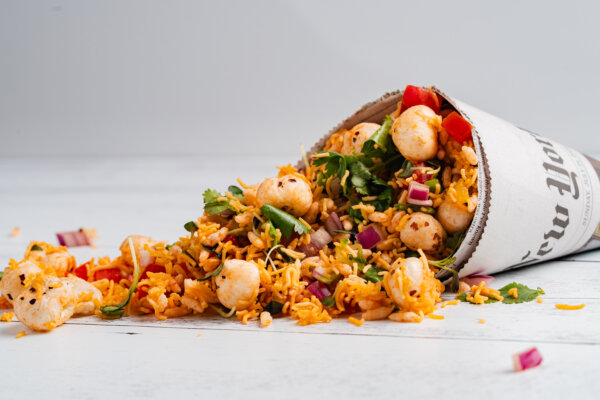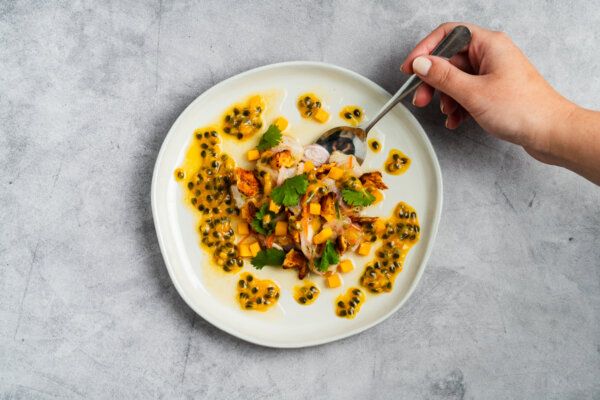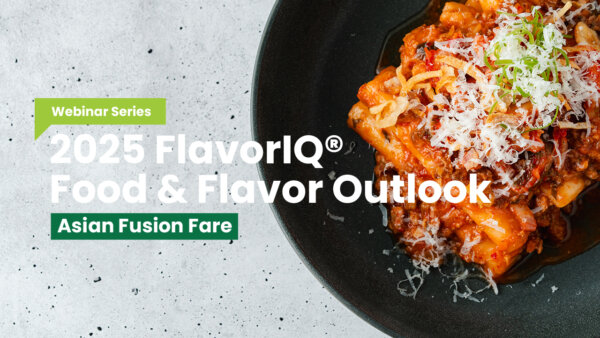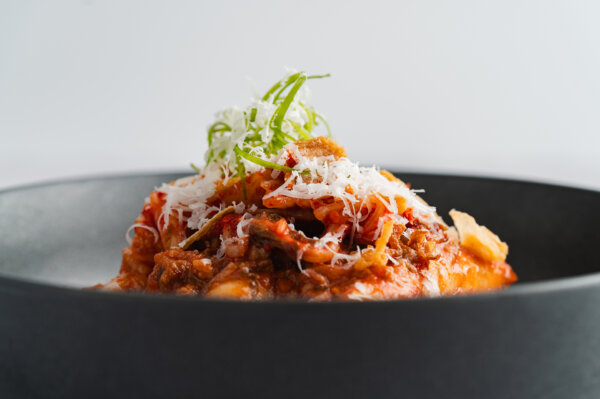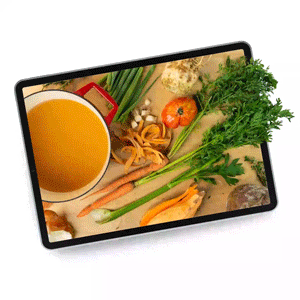

More and more food companies are approaching their business with a sustainability mindset, assessing how their practices can help to nourish the world—making upcycling a path towards the future. Resourceful methods for repurposing off-cuts, byproducts and scraps give new life to ingredients and help to salvage food “waste” that is, in fact, completely edible.
Creative upcycling is especially hot in the snack industry, with products like Australian energy bars made with coffee fruit scraps and sustainable Japanese shrimp crackers utilizing shrimp shells and udon noodle scraps. In both North America and Europe, consumers can find crisps, crackers and other snacks made with upcycled grains from beer production.
Plant-based protein upcycling can also be found in Switzerland, Germany and the Netherlands, where salvaged peas, oats and sunflowers are used to create plant-based chicken kebabs, pulled pork and schnitzel. A Danish startup is even using upcycled juice pulp to create vegan sausages with a “snap” similar to animal-based products.
Education and awareness are critical pieces of the puzzle, and many foodservice operators are doing their part to teach the public about the importance of upcycling.
3 Insights to Know

8 out of 10
Spanish consumers actively try to behave in a way that doesn’t harm the environment. Ensure you consider not only your ingredients but also your byproducts.

41%
of UK consumers, find limiting food waste is one of the most important factors when making food and drink purchases, and with inflation continuing to squeeze wallets, this will only increase going forward.

2/3rds
of GenZs state that sustainable or environmentally-friendly features in products are essential or nice to have, suggesting product sourcing will only come under increased scrutiny.

Cooking with Purpose
Zero-waste cooking is all about using innovation, creativity and the circular economy model to create more with what we already have. Get inspired by these on-trend concepts to create innovative offerings using products from Griffith Foods.
Repurposed Gatsby Sandwich
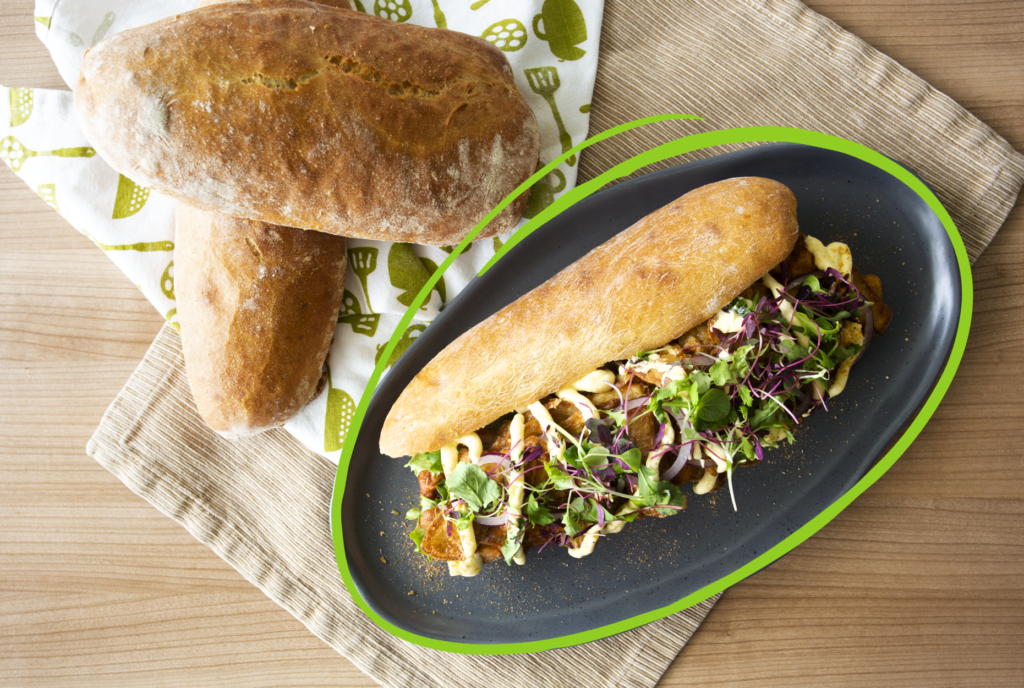
Chef Anoescha Joubert presents a Bigga Baguette with Chorizo Spiced Boerewors Sausage. A Fusion between traditional South African Boerewors and Spanish Chorizo sausage. With repurposed Potato Skin Chips spiced with Six Gun Grill Seasoning. All topped with a delicious Gruyere Cheese sauce and a Mediterranean style relish, made from leftover vegetables.
Carrot & Zucchini Kaskarikas with Tomato and Greek Dill sauce
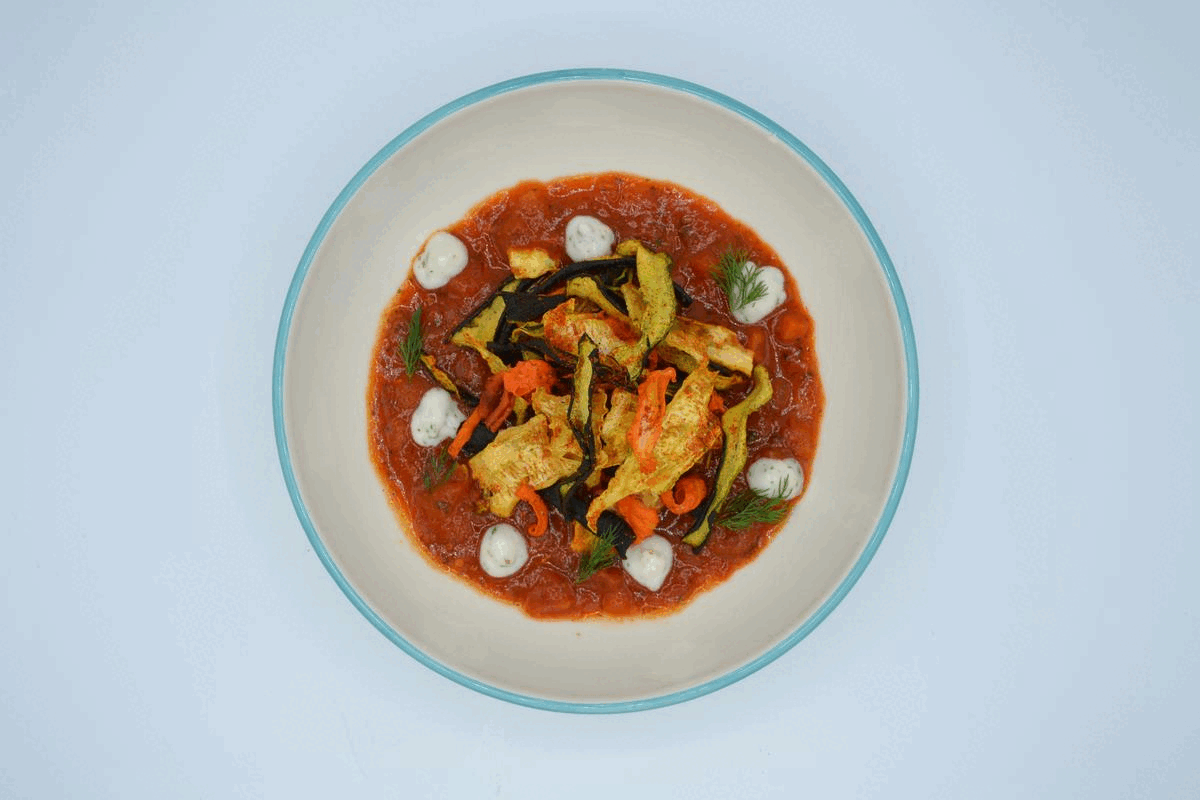
Mücver is a popular Turkish recipe that uses zucchini without its skin. When preparing it, rather than throw away peels, they are used to make a dish called “kaskarikas”. Take a look at this video with the full original Turkish recipe. It is not by chance that Kaskarikas is similar to “cascarillas” which means peels in Spanish, as the recipe has its origins in Shepardic Jewish cuisine.
Chef Jordi Gallego, inspired by this concept and its name, decided to create the version of it that you can see in the pictures above – It is made with carrot & Zucchini dried vegetable peels with Z’atar seasoning, served with Greek Yoghurt Dill sauce and Zautoum Tomato sauce.
Free-Chicken-Free Yassa
Chef Ramadhan Sindayigaya shows us how to cook an exotic Senegalese Dish, made of onion, olives, plant-based chicken, tomato and mustard.
Using ripe tomatoes that would have gone to waste otherwise, he prepared a tomato sauce that served as a base for the recipe. For the plant based chicken, he used a Griffith Foods blend. Learn more about chicken mimics.
Retail inspiration
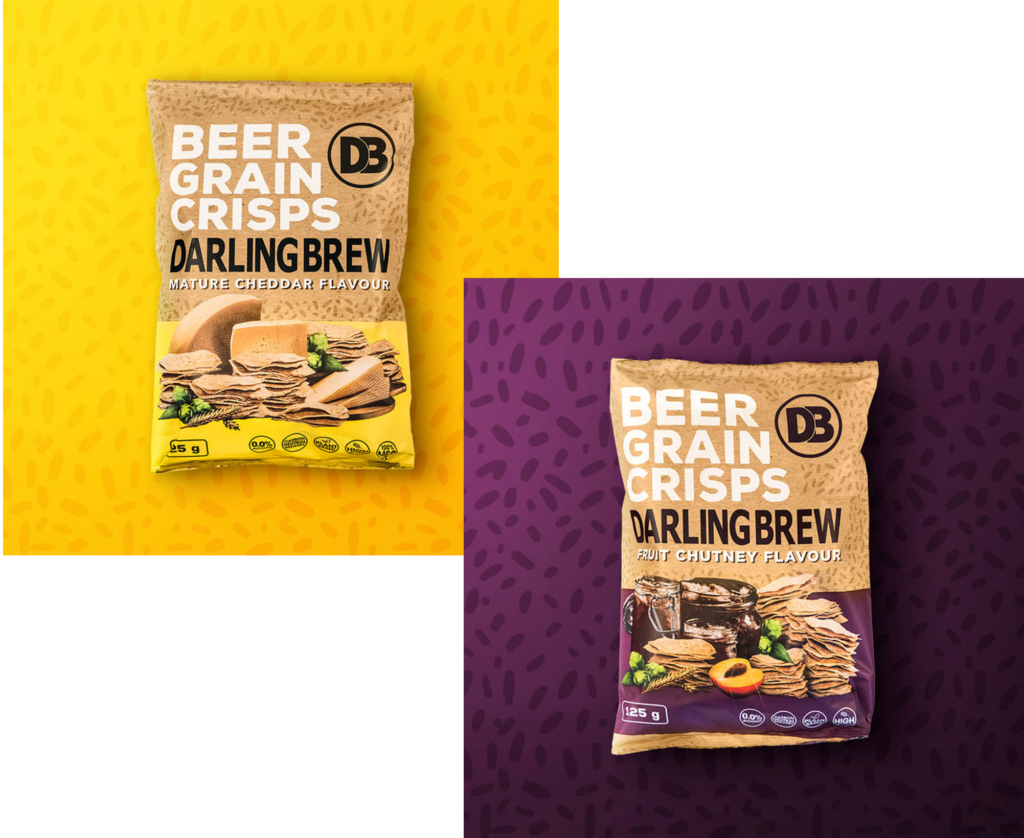
Darling Brew is one of the most recognizable and highly acclaimed craft beer brands in South Africa. Their core business is the beer production, but they have launched Beer Grain Crisps, made using the spent grains from the beer making process. Additionally, the crisps are 50% lower in fat than regular crisps, and as a result of the spent grains are high in fibre.
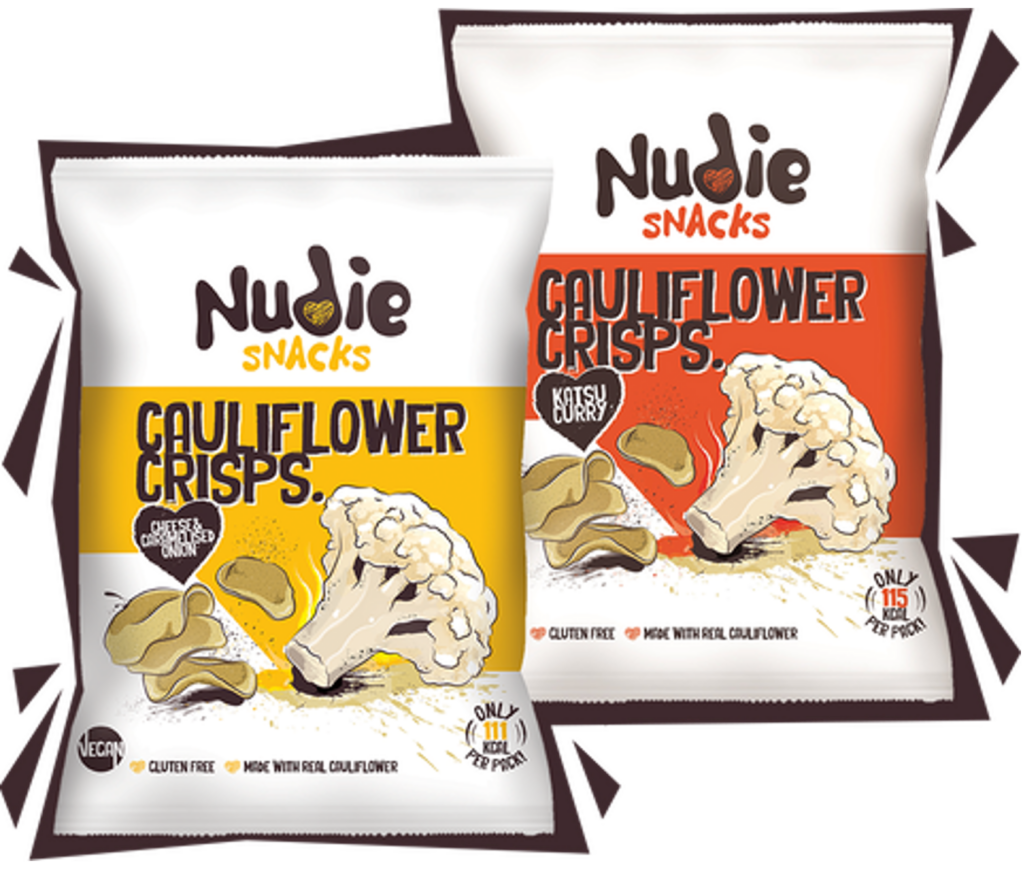
UK based company Nudie has created cauliflower crisps that are made with “wonky waste veg” – or parts of the cauliflower that would otherwise be discarded.
Caju Love is the first ever cashew fruit meat, created by first generation Brazilian and Colombian immigrants and inspired by Brazilian recipes. The meat alternative upcycles the millions of fruits discarded by the cashew nut and cashew juice industries every year.
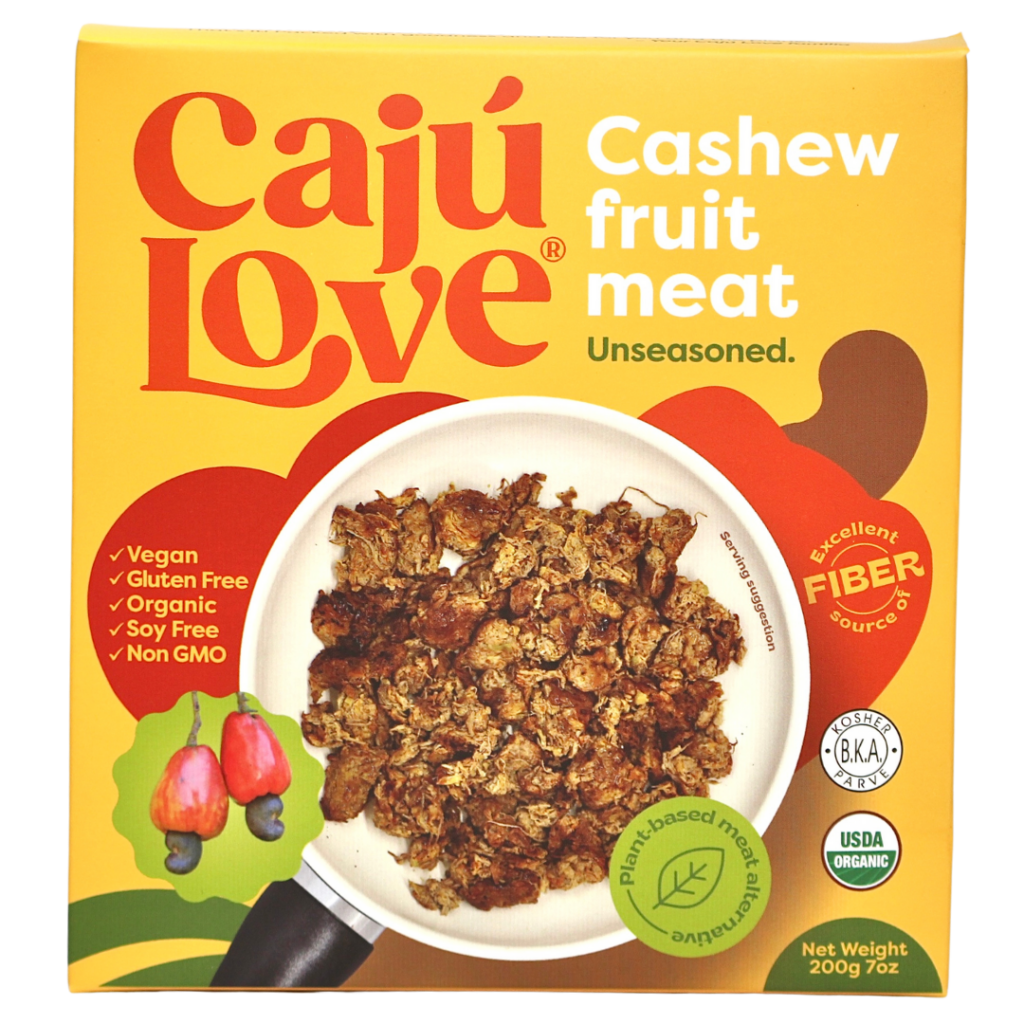
Planted (Switzerland, Germany, Netherlands) uses upcycled swiss peas, oats, and sunflowers in order to make a plant-based meat alternative. The company sells a variety of meat options such as chicken kebabs, pulled pork, and even schnitzel.
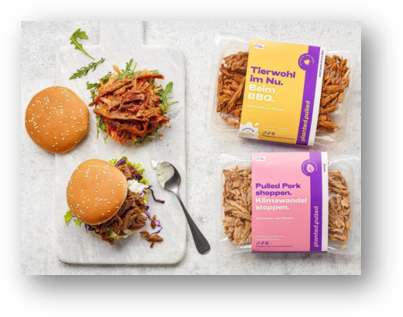
Foodservice inspiration
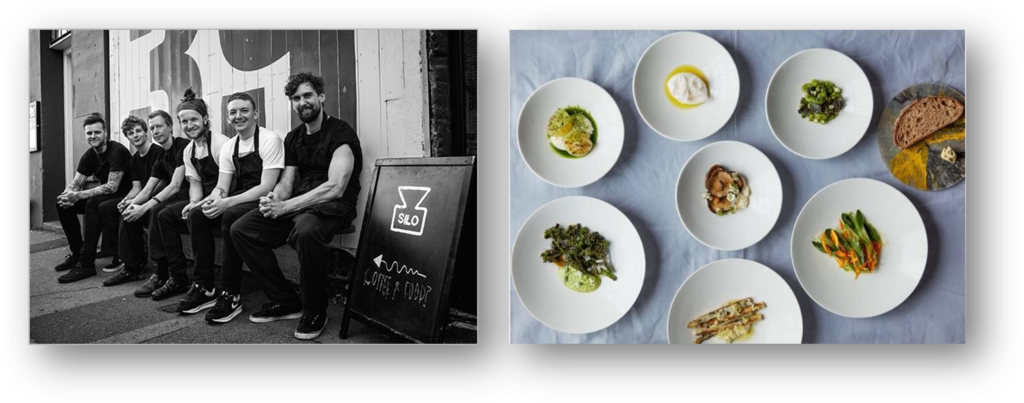
UK restaurant Silo is zero-waste and prioritizing upcycling ideas. All food is delivered packaging free in reusable crates, food grade jerry cans, pails, or containers. The restaurant goes so far as to use their discarded coffee grounds to grow in-house mushrooms that are served on their dinner menu.
Repurposed Peels – Founded by students in Milan, the Peel Saver was developed after realizing how much potato is discarded when preparing French fries for quick service restaurants. The cone is made by macerating potato peels, then naturally drying the peels in a cone shape.
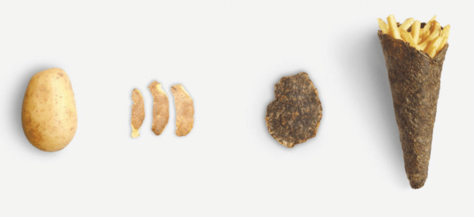
Named in CNN’s Asia’s Top 50 Bars of 2021, Penicillin Bar (Hong Kong) focuses its efforts not only on upcycling food ingredients in its drinks, but also in the restaurant atmosphere. The rinds, pulp, and seeds of lemons that are squeezed for juice are then upcycled into lemon sparking wine.

Not only is the bar upcycling from behind its counters, but it is involving the community as well. Oyster shells from a local seafood restaurant and avocado pits from a Mexican eatery are both taken from neighboring restaurants and used for various purposes in the kitchen.
Expert View
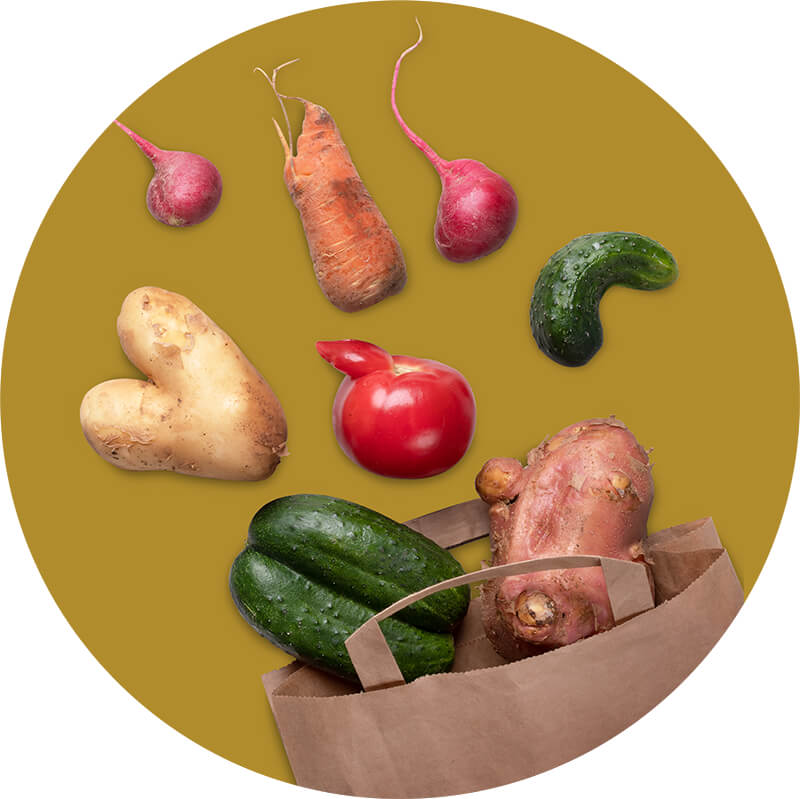
“Wasting food is not only an ethical and economic issue but it also depletes the environment of limited natural resources. By reducing food losses and waste, we will support the fight against climate change, knowing that food waste alone generates 8-10% of global greenhouse gas emissions. We all need to play our part, whether by planning our meals and food purchases as consumers or by innovating and designing new more sustainable products and strategies as manufacturers.”– Arnaud Le Guen, Vice President Sustainability & Purchasing Griffith Foods Europe
Ingredient Production, Without the Waste

NuBana™ Green Banana Powder from TEROVA is Non-GMO Project Verified and naturally rich in resistant starch, a prebiotic dietary fiber. It delivers the functionality of a starch with a fruit label, yet without the sugar or taste of ripe bananas—perfect for snacks; coating systems for chicken, pork and seafood; batters; dough blends; alternative proteins and beverages.
Through the production of NuBana™ Green Banana Powder, TEROVA is helping to reduce banana waste and strives to use the entire crop of peeled green bananas. By contrast, up to 20% of bananas grown for the fresh market are composted or destroyed simply because they do not meet size or shape specifications. Simply put, this versatile “whole food” ingredient isn’t just good for consumers and food manufacturers—it’s good for the planet, too.

© 2022 Griffith Foods. All rights reserved.
Source: Mintel, 2022 FlavorIQ® Global Trends and Insights Report, January 2022.
